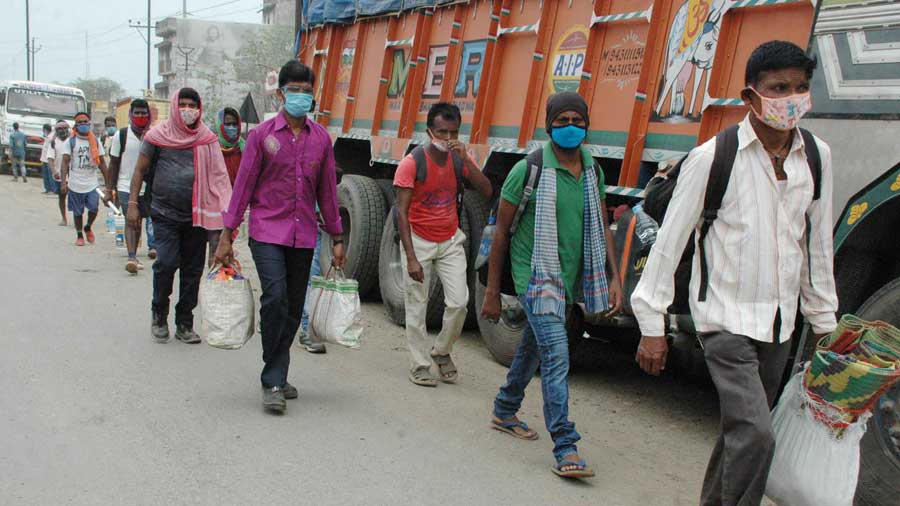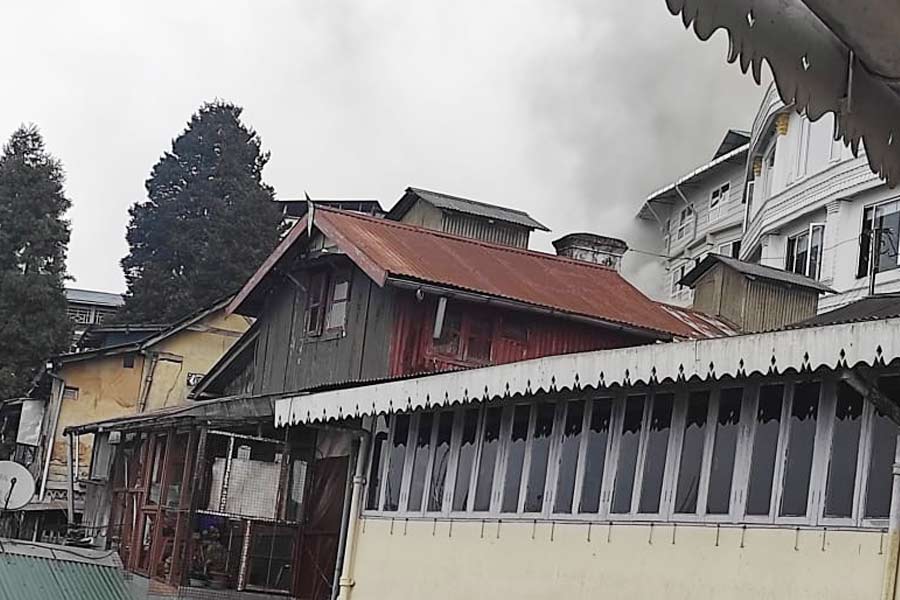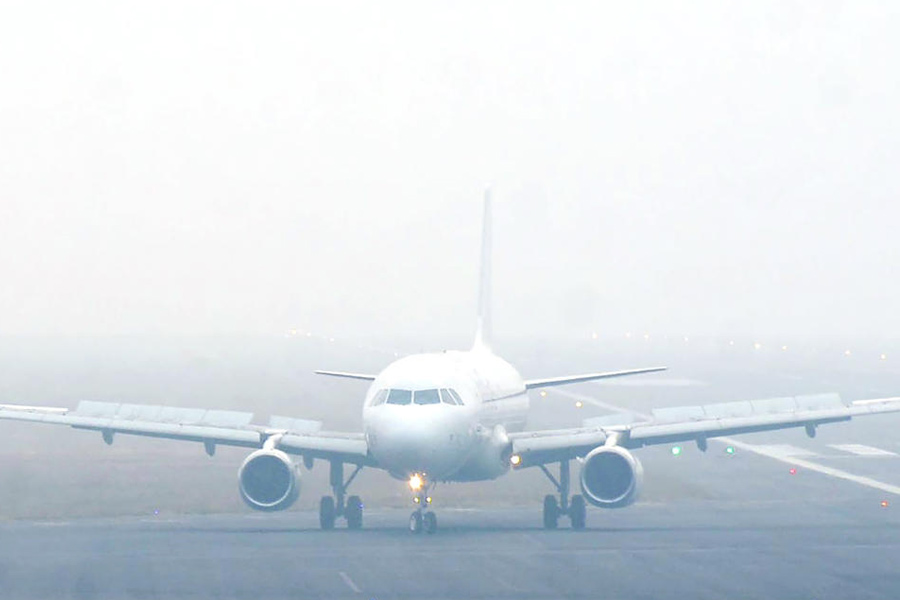Two of every three respondents belonging to marginalised sections such as Dalits, tribals and backward classes have told a national survey that they have reduced their food intake because of a decline in income post-lockdown.
The Right to Food Campaign, a network of civil society groups working on food rights, released on Wednesday the findings of the survey — Hunger Watch — carried out in September. The survey covered 3,994 respondents from 11 states, including Bengal, and tracked hunger among the vulnerable and marginalised communities during the pandemic.
The respondents included 2,186 people from rural areas and 1,808 from urban areas. Around 59 per cent were Dalits and tribals and 23 per cent were Other Backward Classes (OBCs).
About 45 per cent were daily wage labourers and 18 per cent were farmers.
Nearly 62 per cent respondents said their income had fallen compared to the pre-lockdown period. Around 25 per cent said their income in the previous 30 days was half of what it used to be before the lockdown.
About 53 per cent reported that their consumption of rice or wheat had decreased, with one in four saying it had reduced a lot. The survey did not specify what it meant by “a lot”, saying the description was based on perception.
Sixty-four per cent respondents said their consumption of dal had decreased, with 28 per cent reporting that it had reduced a lot.
Seventy-three per cent said they were eating less green vegetables than before, with 38 per cent saying they were eating a lot less.
Fifty-six per cent never had to skip meals before the lockdown, but in the previous 30 days one in seven have had to skip meals often or sometimes, the survey found.
Seventy-one per cent reported that the nutritional quality of food had worsened. Two-thirds reported that the food quantity had either decreased somewhat or decreased a lot. For about 45 per cent, the need to borrow money for food had increased since the lockdown.
About 75 per cent respondents said they had some kind of ration cards, such as the National Food Security Act (NFSA) card or the Antyodaya Anna Yojana card or state ration cards, that gave them subsidised grains.
The government has announced 5kg of additional grains and 1kg of pulses per person per month to NFSA card-holders. Nearly 86 per cent of the NFSA card-holders surveyed said they had received the free grains and pulses.
At a media conference in Delhi, Deepa Sinha from the Right To Food Campaign said the organisation supported the farmers’ agitation. She said the food security act provided for procurement, storage and movement of grains.
“Weakening the minimum support price and procurement mechanism could have serious implications for the public distribution system, pushing it towards cash transfer,” Sinha said. The Right To Food Campaign believes that adequate amount of food cannot be bought with such cash transfers.
She demanded universal PDS that provides every individual with 10kg grains, 1.5kg pulses and 800gm cooking oil every month for at least the next six months, up to June 2021.
Sinha demanded nutritious hot cooked meals through anganwadi centres and school midday meals for children. She also demanded an enhanced social security pension of at least Rs 2,000 per month for elderly people, single women and disabled persons.











